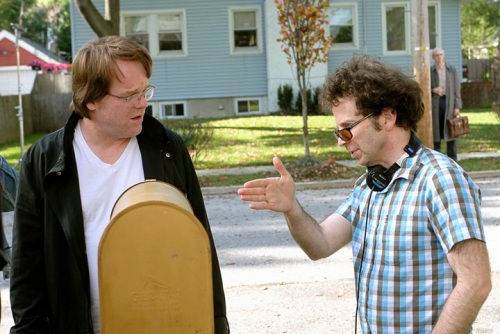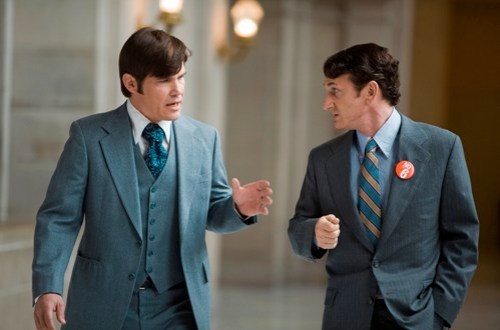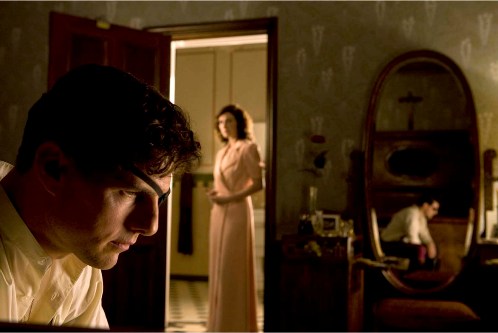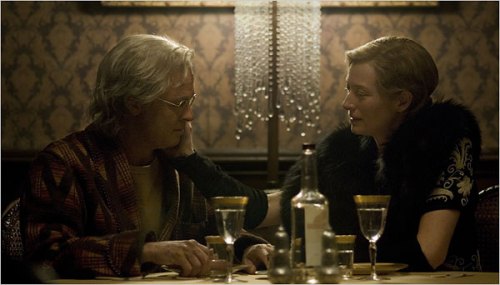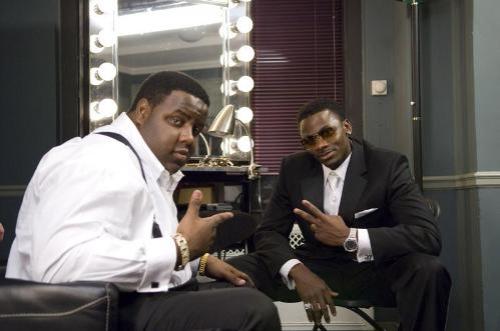
Courtesy: Fox Searchlight
The Biggie Smalls biopic Notorious is, predictably enough, a family affair in numerous ways. Biggie’s mother, Voletta Wallace was involved extensively, even anointing Jamal Woolard as her son in an open casting call. Furthermore, her grandson, CJ Wallace, plays the young incarnation of his father apparently blissfully ignorant of the implications his performance entailed. While it is perfectly acceptable that Mrs.Wallce, a woman who by all accounts was the most positive voice in Biggie’s tumultuous life, be involved in her son’s biopic, it places an artistic chokehold on the material. Watching the film, one is forced to look around in incredulity, wondering if anybody else in the theatre was buying the glossy depictions of Saint Smalls and his madonna of a mother. Aside from that of Mrs. Wallace, the other prominent meddling that can be detected in the film comes directly from the diamond studded hand of Sean ‘Puffy/P.Diddy/Diddy’ Combs. Derek Luke plays Combs as Biggie’s guardian angel, a helpful and selfless model of benevolence who was only too happy to turn Biggie’s life around and take him to the promise land while asking relatively little in return. Naturally, there is little hint of the shameless profiteering Combs clearly engaged in as he built his empire off of the life but mostly the death of Biggie. Lil Kim even gets recast as simply a wounded soul madly in love. One begins to wonder how the sweetheart on the screen ended up a convicted felon and noted crazy person.
In fact, Notorious bears little resemblance to Biggie’s masterpiece debut, Ready to Die or even to the lesser sequel, Life After Death. Rather it is kin to Born Again, the post humous collection of botched and brazenly cynical remixes and unreleased tracks created by Combs and Biggie’s estate to cash in one last time before Biggie lost his hold on the national consciousness. Granted, Notorious is not without its small successes. Woolard’s Biggie, if nothing else, is especially charming and winsome, qualities often overlooked when discussing the man. In addition, hee can certainly look like Biggie, an accomplishment not be dismissed. Angela Bassett brings appropriate gravitas and regal bearing as Voletta even if her theatrics square very rarely with the largely buoyant tone of the movie. There is even a modicum of style in director George Tillman’s camera work, even if the first act seemingly pilfered its visuals from Everybody Hates Chris.
As much as the talent involved tries, however, the calculated stench of the Hollywood biopic never quite washes off. Woolard is funny but he is severely lacking in gravitas. Although meant to be indelible, shots of Biggie on his throne,cane in hand and hat on head, end up almost comic as one sees not the king of the game but a chubby poseur out of his league. As much as Mrs. Wallace and everyone involved would like to ignore it, Biggie was, at times, a dark, dark motherfucker. Ready to Die is a nightmare of a record whose foreboding atmosphere of doom is only matched by its penchant for brilliant fatalist musings. If Notorious had followed the grand, tragic arc set forth in that classic then it might have achieved a Shakespearean heft equal to that of its protagonist. What should be transcendent tragedy is molded by Tillman Jr. into a pandering, inept and ultimately incomplete portrait. Shots of Biggie doing bad things like selling crack to a pregnant woman or exploding in anger seems requisite rather than revelatory. The crackhead even goes on to miraculously have a productive life and a fine son leaving one to wonder if Saint Smalls was kind and magnanimous enough to supply her with magical crack. When that final, fated bullet ends the life of Christopher Wallace one is left happy and hopeful, confident that Biggie, joyous and well fed in heaven, is delivering the voiceover with a smile and a warm heart. Well, fuck that shit.
Allow me to quote a great poet who deserves better:
“When I die, fuck it I wanna go to hell
Cause Im a piece of shit, it aint hard to fuckin tell
It dont make sense, goin to heaven wit the goodie-goodies
Dressed in white, I like black tims and black hoodies
God will probably have me on some real strict shit
No sleepin all day, no gettin my dick licked
Hangin with the goodie-goodies loungin in paradise
Fuck that shit, I wanna tote guns and shoot dice
All my life I been considered as the worst”
-Vman

